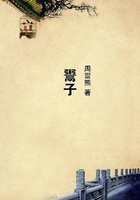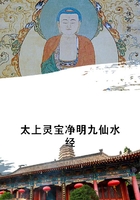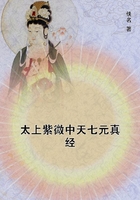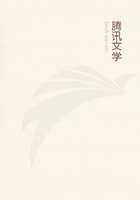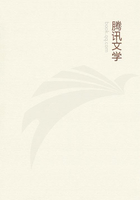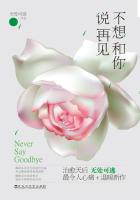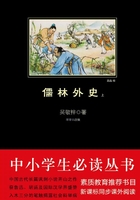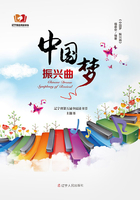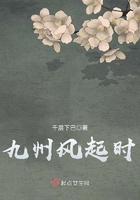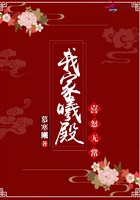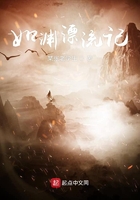Poets are the great artists of language. They even create languages, like Homer and Shakspeare. They are the ornaments of literature. But they are more than ornaments. They are the sages whose sayings are treasured up and valued and quoted from age to age, because of the inspiration which is given to them,--an insight into the mysteries of the soul and the secrets of life. A good song is never lost; a good poem is never buried, like a system of philosophy, but has an inherent vitality, like the melodies of the son of Jesse. Real poetry is something, too, beyond elaborate versification, which is one of the literary fashions, and passes away like other fashions unless, redeemed by something that arouses the soul, and elevates it, and appeals to the consciousness of universal humanity. It is the poets who make revelations, like prophets and sages of old; it is they who invest history with interest; like Shakspeare and Racine, and preserve what is most vital and valuable in it. They even adorn philosophy, like Lucretius, when he speculated on the systems of the Ionian philosophers. They certainly impress powerfully on the mind the truths of theology, as Watts and Cowper and Wesley did in their noble lyrics. So that the most rapt and imaginative of men, if artists, utilize the whole realm of knowledge, and diffuse it, and perpetuate it in artistic forms. But real poets are rare, even if there are many who glory in the jingle of language and the structure of rhyme. Poetry, to live, must have a soul, and it must combine rare things,--art, music, genius, original thought, wisdom made still richer by learning, and, above all, a power of appealing to inner sentiments, which all feel, yet are reluctant to express.
So choice are the gifts, so grand are the qualities, so varied the attainments of truly great poets, that very few are born in a whole generation and in nations that number twenty or forty millions of people. They are the rarest of gifted men. Every nation can boast of its illustrious lawyers, statesmen, physicians, and orators; but they can point only to a few of their poets with pride. We can count on the fingers of one of our hands all those worthy of poetic fame who now live in this great country of intellectual and civilized men, one for every ten millions. How great the pre-eminence even of ordinary poets! How very great the pre-eminence of those few whom all ages and nations admire!
The critics assign to Dante a pre-eminence over most of those we call immortal. Only two or three other poets in the whole realm of literature, ancient or modern, dispute his throne. We compare him with Homer and Shakspeare, and perhaps Goethe, alone. Civilization glories in Virgil, Milton, Tasso, Racine, Pope, and Byron,--all immortal artists; but it points to only four men concerning whose transcendent creative power there is unanimity of judgment,--prodigies of genius, to whose influence and fame we can assign no limits; stars of such surpassing brilliancy that we can only gaze and wonder,--growing brighter and brighter, too, with the progress of ages; so remarkable that no barbarism will ever obscure their brightness, so original that all imitation of them becomes impossible and absurd. So great is original genius, directed by art and consecrated to lofty sentiments.
I have assumed the difficult task of presenting one of these great lights. But I do not presume to analyze his great poem, or to point out critically its excellencies. This would be beyond my powers, even if I were an Italian. It takes a poet to reveal a poet. Nor is criticism interesting to ordinary minds, even in the hands of masters. I should make critics laugh if I were to attempt to dissect the Divine Comedy. Although, in an English dress, it is known to most people who pretend to be cultivated, yet it is not more read than the "Paradise Lost" or the "Faerie Queene," being too deep and learned for some, and understood by nobody without a tolerable acquaintance with the Middle Ages, which it interprets,--the superstitions, the loves, the hatreds, the ideas of ages which can never more return. All I can do--all that is safe for me to attempt--is to show the circumstances and conditions in which it was written, the sentiments which prompted it, its historical results, its general scope and end, and whatever makes its author stand out to us as a living man, bearing the sorrows and revelling in the joys of that high life which gave to him extraordinary moral wisdom, and made him a prophet and teacher to all generations. He was a man of sorrows, of resentments, fierce and implacable, but whose "love was as transcendent as his scorn,"--a man of vast experiences and intense convictions and superhuman earnestness, despising the world which he sought to elevate, living isolated in the midst of society, a wanderer and a sage, meditating constantly on the grandest themes, lost in ecstatic reveries, familiar with abstruse theories, versed in all the wisdom of his day and in the history of the past, a believer in God and immortality, in rewards and punishments, and perpetually soaring to comprehend the mysteries of existence, and those ennobling truths which constitute the joy and the hope of renovated and emancipated and glorified spirits in the realms of eternal bliss. All this is history, and it is history alone which I seek to teach,--the outward life of a great man, with glimpses, if I can, of those visions of beauty and truth in which his soul lived, and which visions and experiences constitute his peculiar greatness. Dante was not so close an observer of human nature as Shakspeare, nor so great a painter of human actions as Homer, nor so learned a scholar as Milton; but his soul was more serious than either,--he was deeper, more intense than they; while in pathos, in earnestness, and in fiery emphasis he has been surpassed only by Hebrew poets and prophets.

